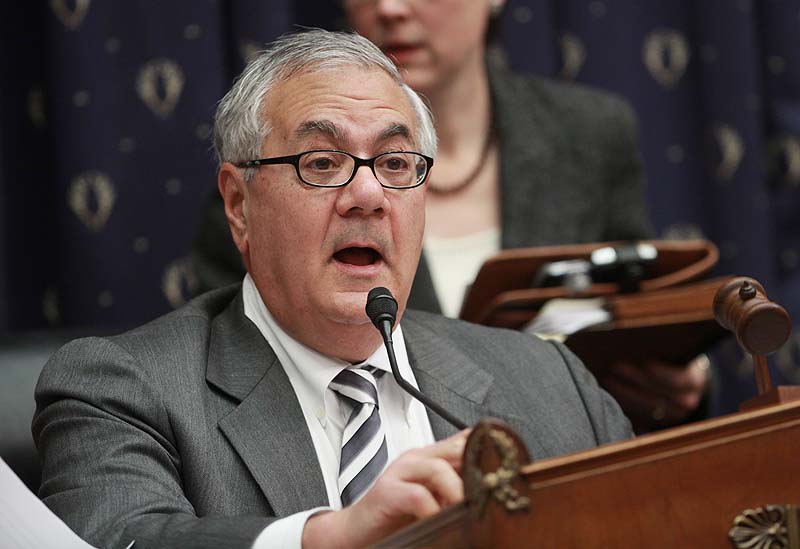A silver lining in the political cloud engulfing Washington is the absolute clarity it has brought to one strongly contested argument: Federal government spending can have a positive effect on the economy, particularly employment.
Until sequestration loomed, conservatives argued that federal spending did nothing positive for job creation. Ninety-nine percent of congressional Republicans opposed the economic stimulus proposed by President Obama in 2009 to help get us out of the deep recession he inherited. They rejected his argument that it would result in more jobs.
Even after a broad consensus of analysts agreed that the stimulus had reduced unemployment — although they debated by how much — congressional Republicans, Fox News and Rush Limbaugh insisted it had done no such thing.
This persistence by the right in contradiction of the evidence reflects the difficulty of settling policy debates. Outside of a controlled experiment, it is hard to isolate the impact of any one action from the multiple factors affecting outcomes.
Policy choices often reflect deeply held, sharply differing value systems, giving those engaged in the arguments strong vested intellectual interest that heavily influences their judgment about what works and what doesn’t.
Many other factors besides the stimulus affected the U.S. jobs picture — some of them quite negative, primarily the economic troubles in Europe.
The Obama administration underestimated the depth of the 2008 crash, and consequently made overly optimistic predictions about the unemployment number after the stimulus took effect.
This allowed conservatives who objected to the program on ideological grounds to ignore the fact that stimulus spending created more jobs than would have existed without it. Democrats were left to counter by responding, in effect, “Things would have stunk worse without us” — a response that is both economically true and politically ineffective.
The 2010 election was won decisively by conservatives in part because most of the people who voted bought the argument that government expenditures had no positive effect on job numbers. But having done so well with that argument until recently, conservatives have now abruptly repudiated it.
The reason is simple: The current debate about the federal budget has shifted from Democratic efforts to increase aid to state and local governments and spending on infrastructure to Republican determination to prevent reductions in our large military budget. Apparently, while what is sauce for the goose may be sauce for the gander, in the conservative mind, what applies to the stimulus does not apply to the sequester.
When they are talking about hundreds of billions of dollars spent on maintaining American bases throughout the world, increasing a nuclear weapons stockpile already larger than we need and allowing contractors great latitude in billing us for expensive new weapons systems that only add to the insurmountable advantage we already have over any potential adversary, conservatives sound like Franklin Roosevelt at his most enthusiastic, advocating public works.
Conservatives now emphasize the positive economic impact of the Pentagon’s budget rather than its national security impact. They are aware of increasing skepticism on the part of Americans about more military intervention in the Third World and continued heavy expenditures on bases in the territory of our wealthy allies whose military budgets are meager because they can count on us to defend them. (With regard to the wealthy nations of Western Europe, it is of course wholly unclear as to the nature of the threat against which we are protecting them.)
As to the economic effects of federal spending, the Republicans have finally gotten it correct: There is a job-creation element in federal spending, and job losses when spending is withdrawn.
This does not mean we should never reduce federal spending. It means we should carefully consider both the timing and the nature of those reductions, avoiding deep cuts at this moment when unemployment is still too high, and structuring reductions to take effect later.
It also means avoiding across-the-board cuts — which is why I voted against sequestration — and making those reductions that can be accommodated in the current situation with attention to their economic effect.
Rapidly removing our troops from Afghanistan, notifying our European allies that they are in charge of their own defense, reversing Republican-mandated plans to add to a nuclear stockpile that already exceeds our needs — these actions reduce the deficit far more than they hurt jobs.
And if the money saved is spent on helping state and local governments retain essential personnel, on repairing roads and bridges and on expanding medical service to veterans, we will have both a better economy and a better society.
Now that there is a national consensus that government spending can have a positive jobs impact — and now that the sequester threat to defense spending has made Keynesians out of Republicans — we can go forward with a budget policy that reflects this reality.
Former congressman and new Maine resident Barney Frank will be a regular contributor to the Telegram’s Insight section.
Send questions/comments to the editors.



Success. Please wait for the page to reload. If the page does not reload within 5 seconds, please refresh the page.
Enter your email and password to access comments.
Hi, to comment on stories you must . This profile is in addition to your subscription and website login.
Already have a commenting profile? .
Invalid username/password.
Please check your email to confirm and complete your registration.
Only subscribers are eligible to post comments. Please subscribe or login first for digital access. Here’s why.
Use the form below to reset your password. When you've submitted your account email, we will send an email with a reset code.